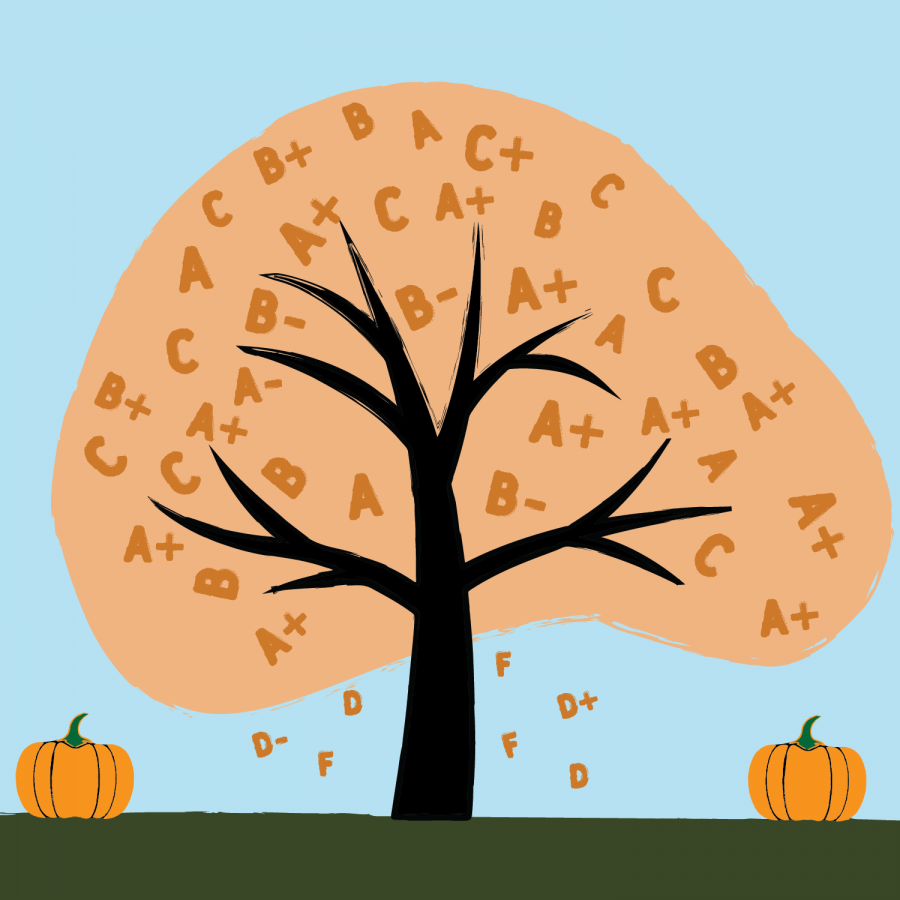Opinion | A lesson for educators: expect questions
October 14, 2019
Ahhh, fall. Pumpkins are prevalent in Instagram pictures and Espresso Royale drinks alike. The trees are changing, the leaves are falling … and so are our grades.
It’s hitting that point in the semester where classes are getting hard.
Students are beginning to understand the value of office hours, but the quality of help they get from going varies drastically based on the approach of the teacher.
To the professors, teaching assistants and course assistants caught in the midst of assisting these frantic students: Please, show some patience.
Teachers need to set realistic expectations for their students to understand their role in learning.
Get The Daily Illini in your inbox!
Most full-time professors hold the highest degree in their field. In addition to being well-versed in their subject matters, they have some sort of work experience in that field as well. For instructors of specialized fields, such as business or STEM, the work experience part is especially relevant.
Because of this, it is easy for them to forget that students are exactly that: students. Confused, underexposed, inexperienced learners trying to learn as much as they can in a semester’s worth of time.
This causes impatience and condescension that comes through in the way instructors approach uncertainty. Even if it’s laughing when students ask questions or lightly ridiculing a wrong answer, anything of this nature is severely harmful to students. It rebrands the learning environment as a place unwelcoming of growth, a place where only correctness is acceptable.
This may not seem like the worst thing in the world — after all, the goal of taking a course is to come out of it with a clear understanding of the material.
But think of a situation where a student is already insecure about the class they’re in. Maybe it’s a completely new field for them, a class beyond their skill level or someone in a class that isn’t typically “their” demographic, like a female student in a STEM class or a male student in nursing.
For these students, blowing mistakes out of proportion can be detrimental to their motivation. This impacts their ability to learn from said mistakes and undoubtedly reduces their desire to go above and beyond with course material. As Dr. Ken Shore states, a lack of confidence can also lessen focus and decrease risk-taking.
Ultimately, students who “belong” there and who understand the material, will thrive. The rest are left feeling like they’re fending for themselves.
Luckily, there is much that can be done in order to avoid creating this divisive environment within the classroom. The way my biology professor runs his office hours is a primary example of this.
He waits for people to come to him with questions, not unlike what occurs during most office hours. However, when asked questions, he does everything in his power to go beyond answering it outright.
Rather than focusing on the answer being this or that, he makes sure students can arrive at the answer themselves. He re-walks students through the initial scenario, creates a slightly tweaked one and has them work through the new problem themselves. While that student thinks, he can attend to another student.
If there is a lull in the questions, he always makes sure to take it upon himself to ask anyone sitting in office hours if they need anything, even creating new spinoff problems if he has to, just to keep us challenged.
The biggest takeaway from this approach is his investment. This professor is invested in us understanding the concept, however long it may take for us to get there. I have seen him stay well past his scheduled hours just to finish answering questions.
The focus of any teacher should be the development of students’ knowledge, not simply forcing students to memorize the subject matter. Once educators internalize this, teaching will become more effective and inspire students to rise to new heights.
Tara is a freshman in LAS.







